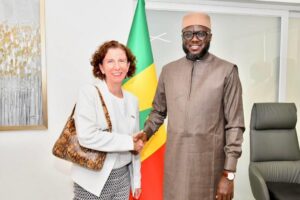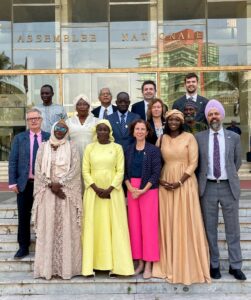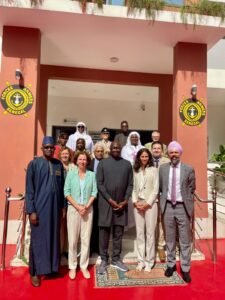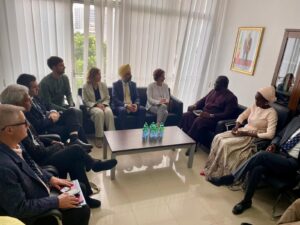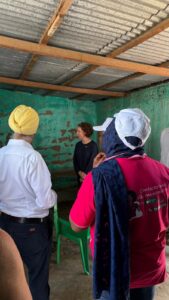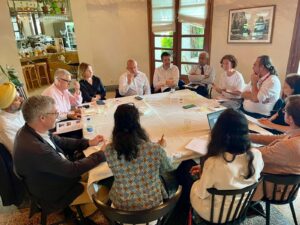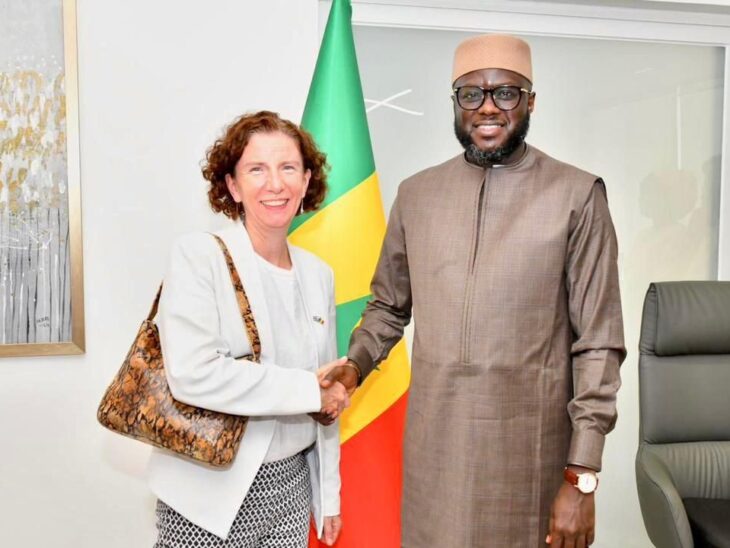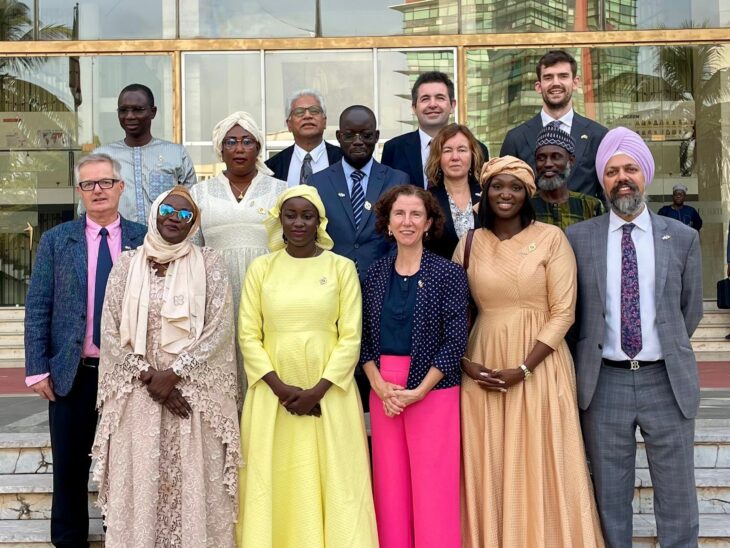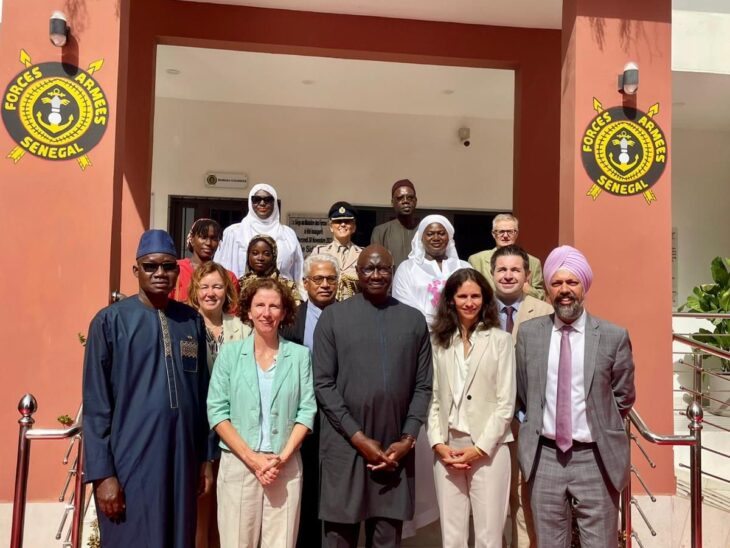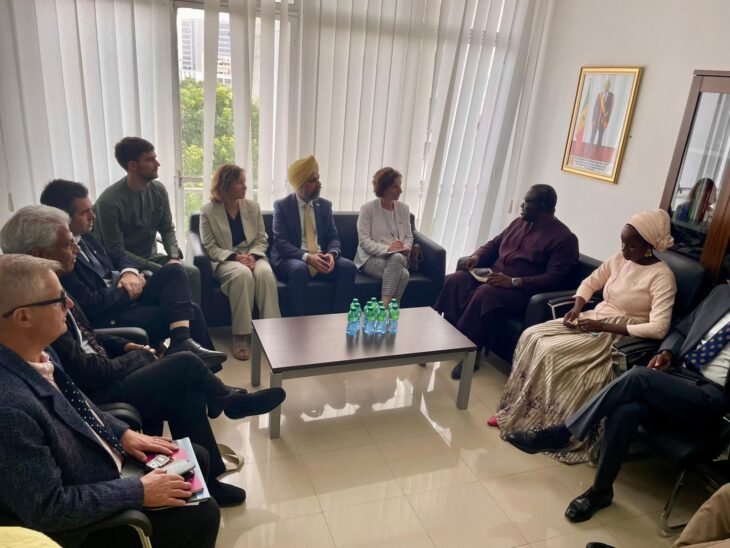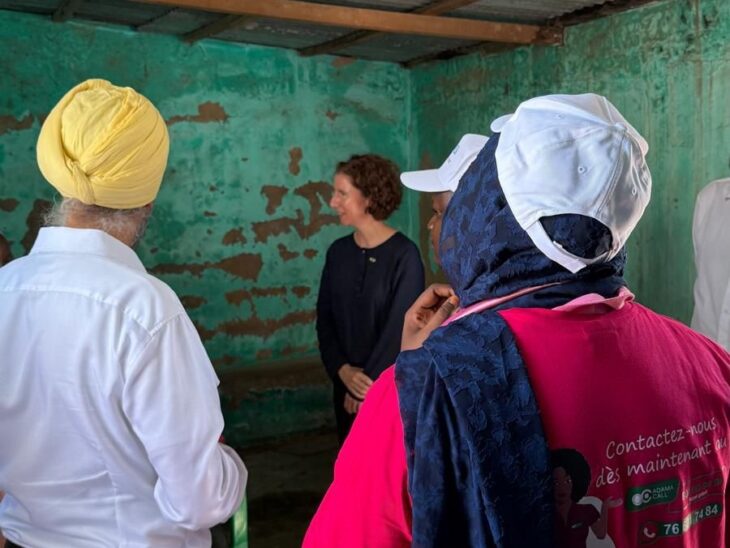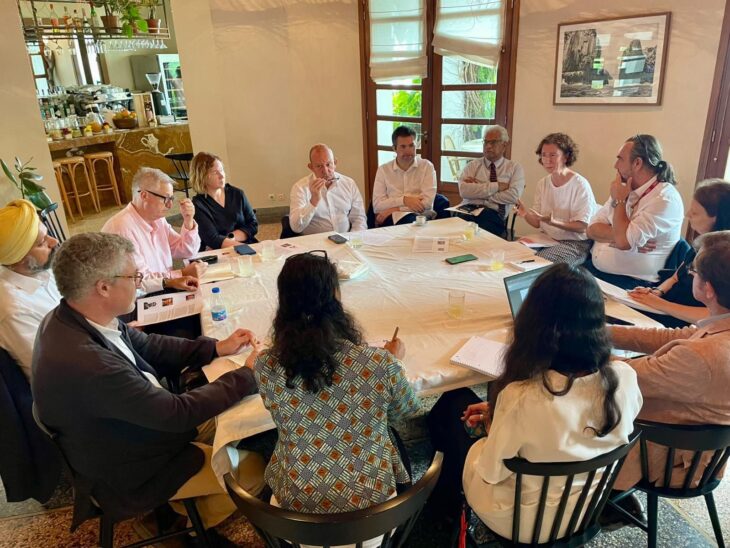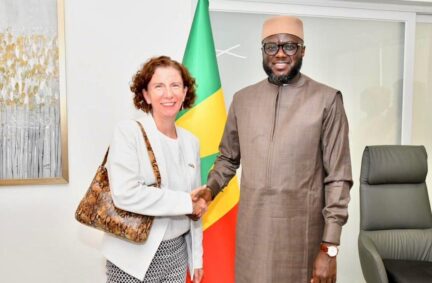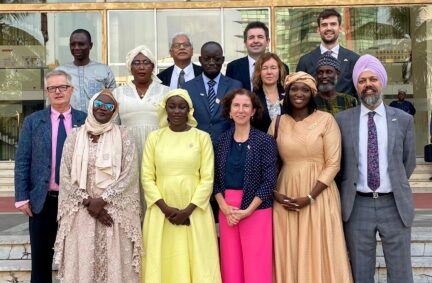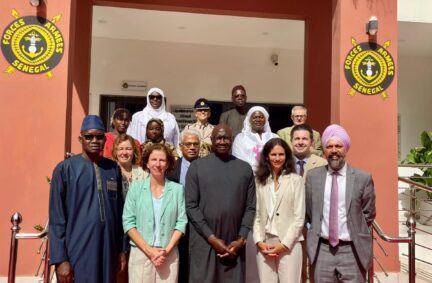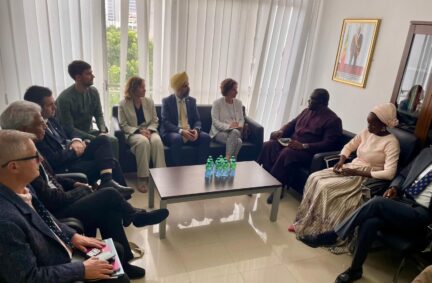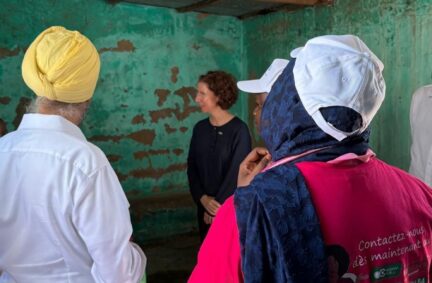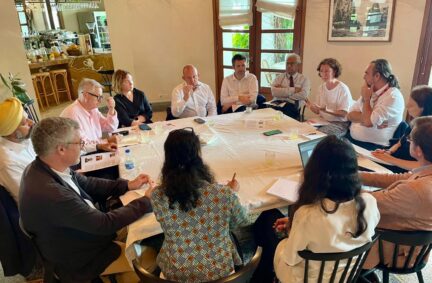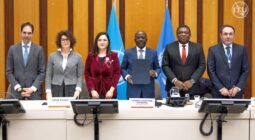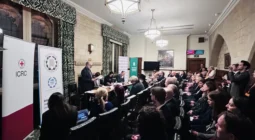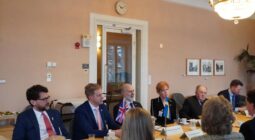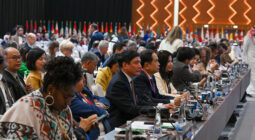

UK Parliamentarians visit Senegal including for launch of Assemblée Nationale’s UK-Senegal Friendship Group
The BGIPU delegation visit to Senegal took place from 5 to 10 October 2025. The delegation comprised Anneliese Dodds MP, Shaun Davies MP, Tan Dhesi MP, Marie Goldman MP, Brendan O’Hara MP and Lord Lemos and was supported by Dominique Rees and Chiara De Vita from BGIPU.
A packed itinerary
During the visit we met with a number of Senegalese politicians, including: the members of a newly-formed UK friendship group; the President of the Parliament and of the largest party group in the parliament; the Defence Minister; the Foreign Secretary’s Chief Advisor; members of four parliamentary committees; and the mayor of Gorée and his team. We also met a number of civil society groups, including members of the elections and democracy organisation COSCE, NGOs delivering healthcare in Mbary and humanitarian support across the Sahel, human rights groups, a think tank on religious and community issues, and a religious/community organisation in Touba. We spoke with a number of those representing the UK in Senegal, not least the Ambassador and her excellent team (whose assistance throughout was exemplary), and also the British Council and British businesses attending the ‘Invest in Senegal’ conference. We also met with a number of impressive Chevening scholars. Finally, we had the privilege of visiting the holy city of Touba, including its new university and enormous mosque; the Isle of Gorée and its House of Slaves; and the Pasteur Institute and Museum of Black Civilizations in Dakar.
Parliamentary exchange
Senegal is the only West African country never to have had a coup and has been relatively untouched by the appalling terrorist violence and instability that has affected most of the rest of the Sahel. We had a thorough and deep exchange of views, perspectives and experiences with all of the elected politicians whom we met. In every case they were both proud of the strength of democracy in Senegal (and the commitment of the electorate to preserve this), and keen to deepen linkages with Britain. This was in a context of moves to diversify the country’s global links. The launch of the UK Friendship Group in the Senegalese Parliament was a particularly important moment to cement relationships between our two parliaments, and we were very grateful for the commitment of the members of this group (who also gave up their time to accompany us to Gorée).
Challenges and opportunities
The UK’s trade with Senegal has tripled over the last five years and the economy has been growing strongly. Recently however, hidden debts have been discovered by the incoming government which have led to the IMF pausing its current programme. We heard a variety of perspectives on why the debt had remained hidden and what needed now to be done. Above all, we noted that the IMF itself will need to learn lessons, as it was clear that the current situation was threatening much-needed investment.
One of the issues raised in the economic context by some politicians and journalists was the nature of out-migration from Senegal. The vast bulk of this does not come to Britain but to France, Spain and Italy. We heard perspectives on what drove some young people to attempt these dangerous journeys, and how the reality of what they encountered was often very different from what they expected. The Yenennga centre was described as leading to ‘reverse brain drain’ – with the centre creating a hub for film production not just in Senegal but right across West Africa and beyond.
The striking social cohesion evident within the country was a frequent topic of discussion, including the role of the different Sufi brotherhoods. The visit to Touba was particularly helpful for us to gain an insight into the relationship between religious bodies and other institutions within the country.
One particularly important Senegalese institution is clearly the military, which is trusted to a very high degree by the population and plays a critical role in healthcare within the country. We heard about how it is enlarging its role in the field of education, to promote positive citizenship with young people.
Britain’s many links with Senegal
We heard of an extraordinary variety of links between Senegal and Britain. These ranged from the new policy of teaching all schoolchildren English (with the British Council supporting this); to the range of British cities associated with work at the Institut Pasteur – including Bedford, Liverpool, London and Oxford; to peer-to-peer work between HMT and the Senegalese government; to the UK’s development activity in the country, including supporting family planning and maternity programmes, and the engagement of the Halo trust in Casamanche; to intensive military coordination, including joint activities and training.
We left the country with the clear impression that our countries share many interests and values with each other, and that we should seek to deepen joint working in the years to come.
